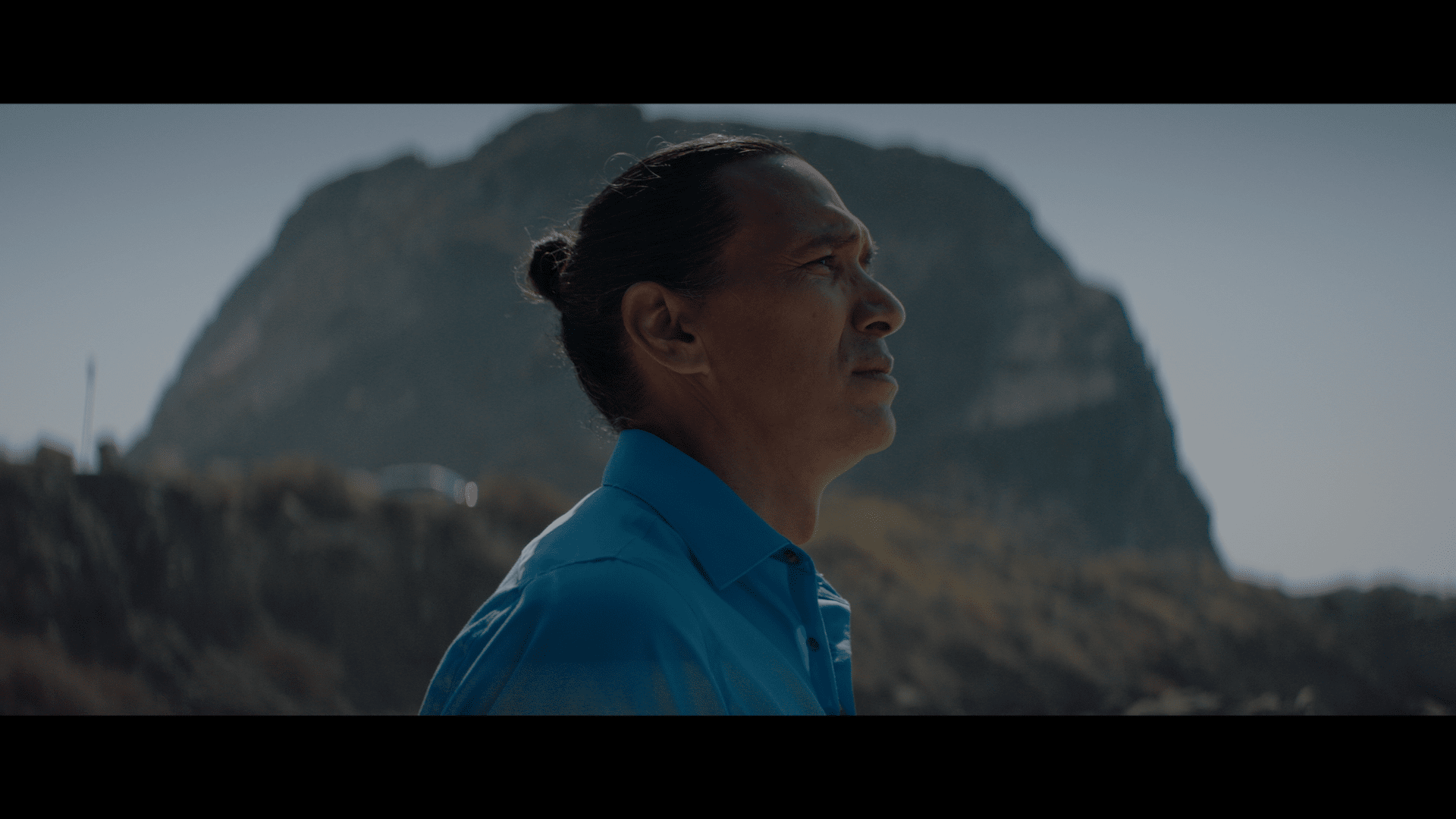
The opening moments of writer-director Lyle Mitchell Corbine Jr.’s Wild Indian begin like a fairytale. It’s unclear which, though, until a few scenes in, when a priest tells the story of Cain and Abel. In the film’s case, that violent Bible story is transported to 1980s Wisconsin, where two Ojibwe boys experience something that changes the course of their lives forever. Though we don’t know when the film starts what’s coming (and it will go unspoiled here), the threat of something horrible is constant and Wild Indian is a tense, wholly engrossing modern parable as a result.
We first meet Makwa (Phoenix Wilson), a sullen, frightened boy with a delicate voice with an abusive home life whose only source of light is shooting a rifle in the woods with his more well-adjusted cousin, Ted-o (Julian Gopal). Makwa is in desperate need of saving and the audience wants to see him saved—until his wounded quality slowly shifts toward violence. That shift culminates in what Makwa and Ted-o do in the woods and the rest of the film–which takes place in 2019–explores how that one event changes everything.
When we meet Makwa as an adult (now played by Michael Greyeyes), he’s a successful businessman. His boyhood capacity for remorseless violence has now solidified into a cold, calculating sociopathy that leaves him struggling to react with any discernible human emotion at all–et alone joy–when his wife (Kate Bosworth) tells him she’s pregnant with their second child. By contrast, Ted-o (Chaske Spencer) now coverd in tattoos and just released from prison, seems to carry the guilt of what he and Makwa did in his every movement.
Corbine Jr. tasks his actors with selling the significant shift in both the characters’ dispositions and circumstances as the film transitions from its first third to the rest and they more than meet the challenge. Spencer’s Ted-o is mostly silent and introspective, but he conveys the character’s regret with his expressive eyes and the firm set of his lips. And when he laughs while playing catch with his nephew, Spencer reveals that the sweet boy Ted-o used to be lingers under that imposing exterior. Meanwhile, Greyeyes plays Makwa, who has anglicized his name to Michael Peterson, as if he were Patrick Bateman in American Psycho. There’s a quiet menace underlying everything he does, from playing golf to luring a stripper into a private room, and because Corbine Jr. goes to extremes in the first act, he leaves the audience constantly worried that Makwa could do something heinous again.
While the performances are certainly responsible for making Corbine Jr.’s script work so well, his tight plotting and the film’s runtime (which he and Ed Yonaitis have edited down to a bracing 90 minutes) also keep its emotions and plot points sharp and thrilling. Corbine Jr. propels the audience through every turn, shocking us one minute even as everything that happens flows logically from how the characters are set up. That said, because Corbine Jr. leaves the plot points and audience so little room to breathe, the film can admittedly come off as almost too exacting. These characters and what happens to them never quite feel totally real, more like a thriller unfolding than a picture of real life.
However, it’s entirely possible that that’s Corbine Jr.’s goal. Wild Indian is a parable about good and evil, and he uses it to explore larger questions of colonization and survival under an oppressive system. At one point, Makwa says to a fellow Ojibwe that those in their community who survive now are the descendants of cowards because the brave ones died fighting. Just as John Steinbeck asked in East of Eden what it means to be good in this world if much of humanity is descended from Cain, Corbine Jr. questions the lengths people will go to survive and succeed. “Resentment and unwillingness to accept responsibility will bring a scourge of unnecessary suffering,” the priest declares at the film’s beginning. The rest of Wild Indian proves it true.

